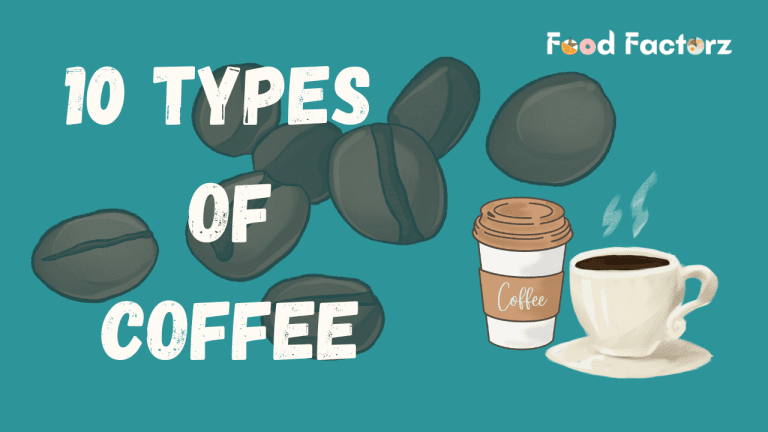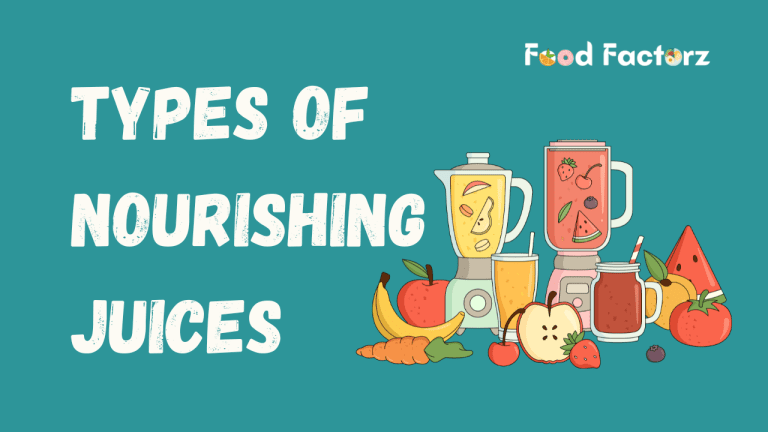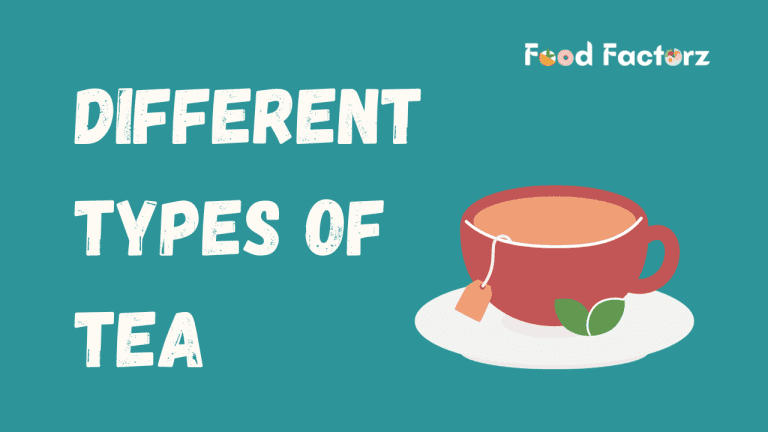“In the realm of nutrition, non-dairy milk is a shining example of how we can make choices that are not only good for our health but also for the planet.”
– Renowned plant-based chef, Matthew Kenney

When there are so many other enjoyable things to do, why grieve over spilled milk? Let me take you on a journey through the Milky Way, where we’ll uncover the diverse and delicious world of non-dairy kinds of milk.”
Introduction
In a world where dietary preferences and restrictions vary, the demand for non-dairy types of milk has skyrocketed. Whether you are lactose intolerant, vegan, or simply looking to explore new flavours, non-dairy milk offers a palette of possibilities. Let’s dive into the origins, types, facts, benefits, and differences that make the Milky Way a fascinating universe of choices.
The Origin of Non-Dairy Milk
The concept of non-dairy milk isn’t a recent phenomenon. Dating back to ancient times, people sought alternatives to traditional animal milk. Early civilizations experimented with plant-based options, driven by factors like lactose intolerance and dietary preferences.
Let’s delve into more detailed explanations for each of the 15 non-dairy types of milk:
Almond Milk

Derived from nutrient-rich almonds, almond milk is a popular non-dairy alternative known for its subtle nutty flavour and creamy texture. Low in calories and a good source of vitamin E, it adds a delightful touch to coffee, cereal, and smoothies. Almond milk is versatile, making it a staple in many kitchens for cooking and baking endeavours.
Soy Milk
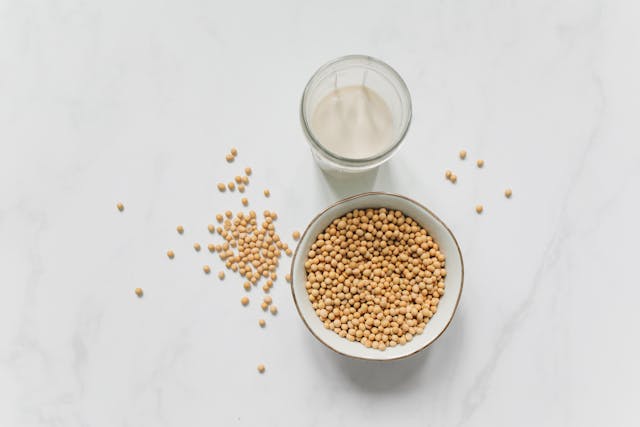
Made from soybeans, soy milk is a protein-packed option with a neutral taste that works well in sweet and savoury dishes. Rich in essential amino acids, it’s a favourite among those seeking a dairy alternative that closely matches the protein content of cow’s milk. Soy milk is often fortified with vitamins and minerals, making it a nutritious choice for individuals looking to meet their daily dietary requirements.
Coconut Milk
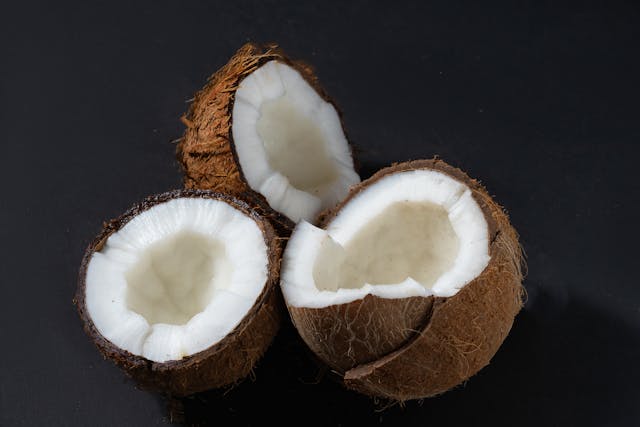
Extracted from coconut flesh, coconut milk imparts a tropical and slightly sweet flavour to dishes. With a rich and creamy consistency, it’s a common ingredient in sweet and savoury recipes, from curries to desserts. Coconut milk is also available in various forms, including full-fat and light, allowing for versatility in cooking and baking applications.
Oat Milk
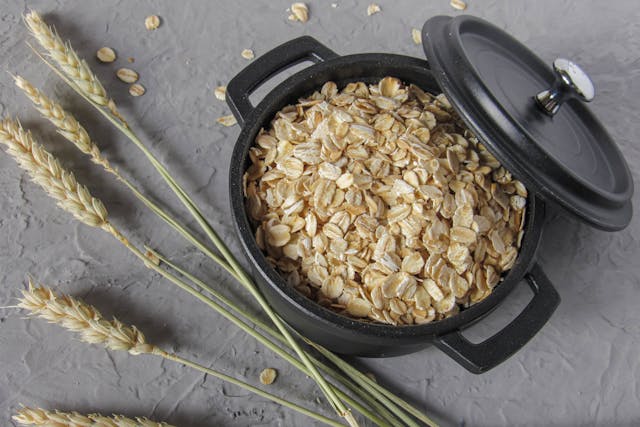
Created by blending soaked oats with water, oat milk is celebrated for its smooth texture and slightly sweet taste. It’s a naturally sweet option that complements coffee, tea, and breakfast cereals. Oat milk is often chosen for its sustainable production and is suitable for those with nut or soy allergies, offering a nut-free alternative with a creamy mouthfeel.
Rice Milk
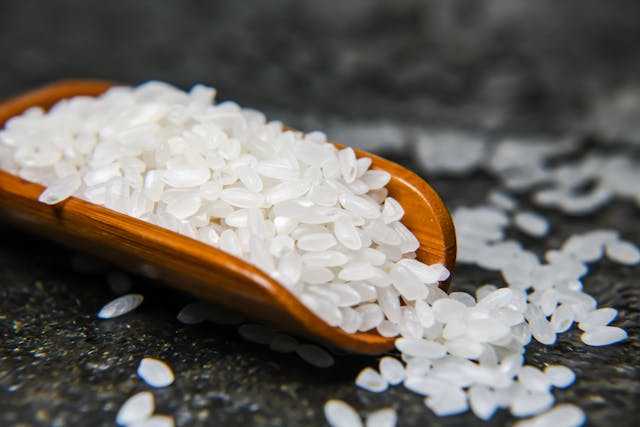
Made from milled rice, rice milk is a mild and neutral-tasting non-dairy milk. It’s a suitable option for individuals with nut, soy, or gluten allergies, as rice milk is typically free from these allergens. While lower in protein compared to some other non-dairy types of milk, rice milk is appreciated for its light and refreshing quality, making it a choice for those who prefer a less assertive flavour.
Cashew Milk

Blended from cashews, cashew milk boasts a rich and velvety texture with a slightly sweet, nutty flavour. It’s a versatile option for sweet and savoury recipes, adding a creamy element to soups, sauces, and desserts. Cashew milk is nutrient-dense, providing essential minerals such as copper, which play a role in maintaining bone health.
Hemp Milk

Made from hemp seeds, hemp milk offers a unique nutty flavour and is a rich source of omega-3 fatty acids. With a creamy consistency, it’s a suitable alternative for those with nut or soy allergies. Hemp milk is also prized for its sustainable cultivation, making it an eco-friendly choice for individuals mindful of the environmental impact of their food choices.
Flax Milk

Derived from ground flaxseeds, flax milk is a mild and slightly earthy non-dairy option. It contains omega-3 fatty acids, contributing to heart health. Flax milk is often chosen for its low-calorie content and nut-free profile, making it suitable for individuals with common allergies. Its mild taste makes it a versatile addition to sweet and savoury dishes.
Pea Milk

Made from yellow peas, pea milk is gaining popularity for its high protein content and creamy texture. It’s a sustainable choice, requiring fewer resources for production compared to some other plant-based milks. Pea milk is often fortified with vitamins and minerals, providing a nutrient-rich option for those seeking a dairy alternative with a protein boost.
Quinoa Milk
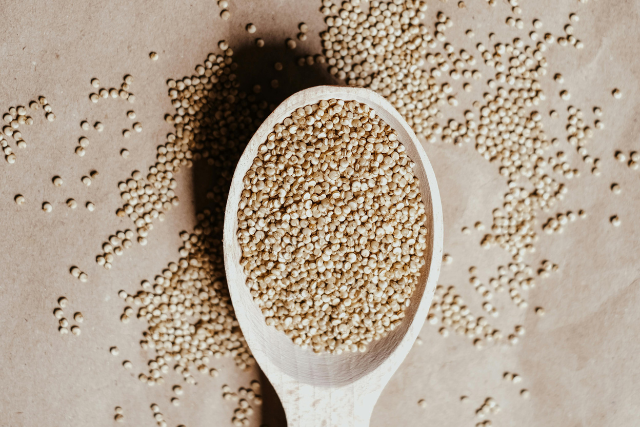
Extracted from quinoa seeds, quinoa milk is a nutrient-dense and gluten-free non-dairy option. It offers a slightly nutty flavour and a smooth consistency, making it a versatile addition to various recipes. Quinoa milk is valued for its protein content, providing an alternative for individuals with soy or nut allergies who still seek a protein-rich non-dairy option.
Macadamia Milk
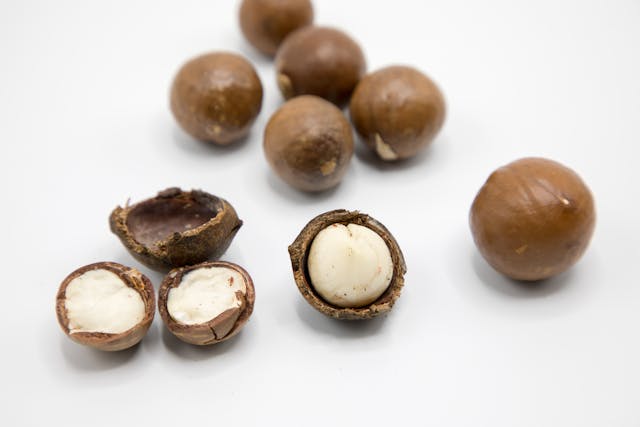
Derived from macadamia nuts, macadamia milk is characterized by its buttery taste and creamy texture. It adds a luxurious touch to coffee, desserts, and sauces. Macadamia milk is often chosen for its unique flavour profile, offering a distinct alternative to more common non-dairy types of milk.
Hazelnut Milk
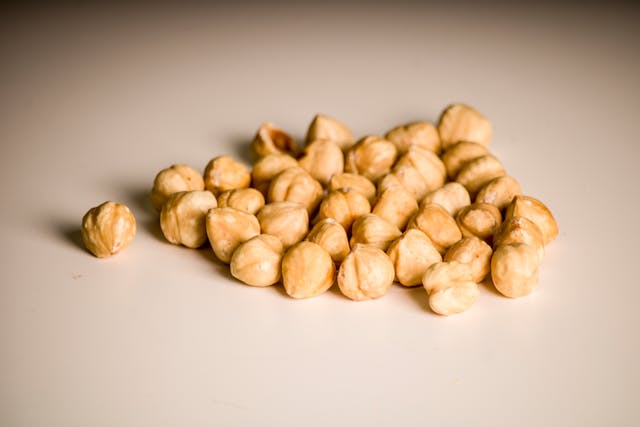
Crafted from hazelnuts, hazelnut milk imparts a sweet and nutty essence to beverages and dishes. With a rich and creamy texture, it’s a flavorful addition to coffee, desserts, and breakfast items. Hazelnut milk is often chosen for its distinct taste, adding a touch of indulgence to both sweet and savoury recipes.
Sunflower Seed Milk

While not as well-known as some other non-dairy types of milk, sunflower seed milk offers a mild flavour and a nut-free alternative. With a thin consistency, it’s suitable for those looking for a lighter option for their beverages and recipes. Sunflower seed milk is appreciated for its allergy-friendly profile, making it accessible to a broader audience.
Pistachio Milk
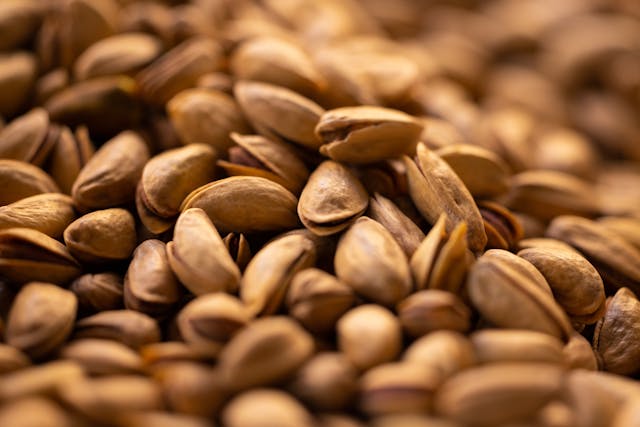
Made from pistachios, pistachio milk introduces a slightly sweet and unique flavour to the world of non-dairy types of milk. With a creamy consistency, it’s a delightful addition to desserts, smoothies, and coffee. Pistachio milk is chosen for its distinctive taste, offering a flavorful alternative for those seeking variety in their non-dairy choices.
Walnut Milk
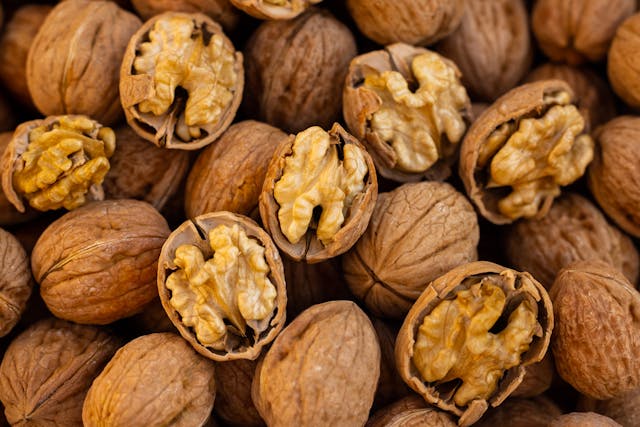
Blending water and walnuts creates walnut milk, which is characterized by its rich and robust flavour. It’s a source of omega-3 fatty acids, contributing to brain health. Walnut milk adds a distinctive taste to sweet and savoury dishes, making it a flavorful option for those looking to experiment with unique non-dairy alternatives.
20 Facts and Benefits of Non-Dairy Types of Milk:
- Non-dairy milks are often fortified with essential nutrients like calcium and vitamin D.
- They are cholesterol-free and lower in saturated fats compared to dairy milk.
- Many non-dairy types of milk are suitable for those with lactose intolerance or dairy allergies.
- Plant-based milk contributes to environmental sustainability, requiring fewer resources than dairy production.
- Non-dairy milk can be used as a 1:1 substitute for dairy milk in many recipes.
- The variety of flavours allows for creative and diverse culinary experiences.
- Certain non-dairy types of milk, like soy and pea milk, are rich in protein.
- Almond milk is a good source of vitamin E, an antioxidant that supports skin health.
- Oat milk contains beta-glucans, which may help lower cholesterol levels.
- Hemp milk provides omega-3 fatty acids, which are crucial for heart health.
- Non-dairy milk can be enjoyed by vegetarians, vegans, and those following kosher or halal diets.
- Cashew milk contains copper, an essential mineral for maintaining bone health.
- Many non-dairy types of milk are naturally lactose-free, making them suitable for lactose-intolerant people.
- Quinoa milk is gluten-free, offering an alternative for individuals with gluten sensitivities.
- Macadamia milk is low in carbohydrates, making it a keto-friendly option.
- Pea milk is a sustainable choice, requiring less water and land than some other plant-based milks.
- Some non-dairy types of milk, like flax and chia seed milk, provide a dose of fibre for digestive health.
- Walnut milk contains omega-3 fatty acids, which are beneficial for brain health.
- Coconut milk adds a unique flavour and texture to sweet and savoury dishes.
- Non-dairy milk can contribute to a well-balanced and varied diet, enhancing overall nutritional intake.
10 Differences Between Dairy Milk and Non-Dairy Milk:
- Lactose Content: Dairy milk contains lactose, while non-dairy milk is typically lactose-free.
- Nutrient Profile: Non-dairy milk may have added nutrients like calcium, vitamin D, and B12.
- Protein Content: Dairy milk generally has more protein than most non-dairy alternatives.
- Caloric Content: Some non-dairy milk may be lower in calories than whole dairy milk.
- Flavour Profile: Each non-dairy milk has a distinct taste, ranging from nutty to sweet.
- Environmental Impact: Non-dairy milks often have a lower environmental footprint than dairy production.
- Allergen Concerns: Non-dairy milk provides options for those with nut, soy, or lactose allergies.
- Storage Requirements: Non-dairy milk may have different storage needs, such as refrigeration or shelf-stable options.
- Texture and Consistency: The texture of non-dairy milk can vary, from creamy to thin.
- Culinary Use: Non-dairy milk can be used in a variety of recipes, just like dairy milk.
Storing Non-Dairy Milk: 7 Useful Points:
- Refrigeration: Most non-dairy types of milk require refrigeration after opening.
- Expiration Dates: Check expiration dates and consume before the indicated time.
- Sealed Containers: Choose products in airtight, sealed containers for freshness.
- Shake Well: Shake the container well before pouring to ensure even consistency.
- Dark Bottles: Opt for non-dairy milk in dark bottles to protect against light exposure.
- Store Upright: Store containers upright to prevent separation and settling.
- Follow Manufacturer Guidelines: Adhere to specific storage instructions provided by the manufacturer.
Conclusion
As we journeyed through the Milky Way of non-dairy milk, the array of options and benefits became evident. Whether you’re sipping a comforting almond latte or incorporating coconut milk into a savoury curry, the world of non-dairy types of milk is as diverse as it is delicious. Embrace the richness of these alternatives, not just for their taste, but for the positive impact they can have on your health and the environment.
Join me in this exploration—share your favourite non-dairy types of milk and the inventive ways you incorporate them into your daily life. Let’s make the Milky Way even more flavorful together!


